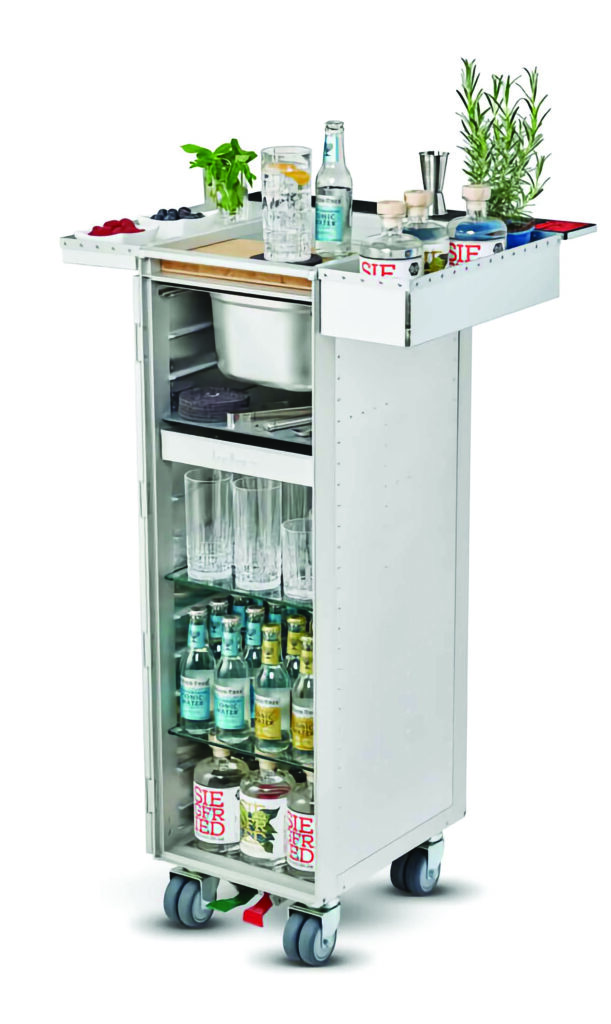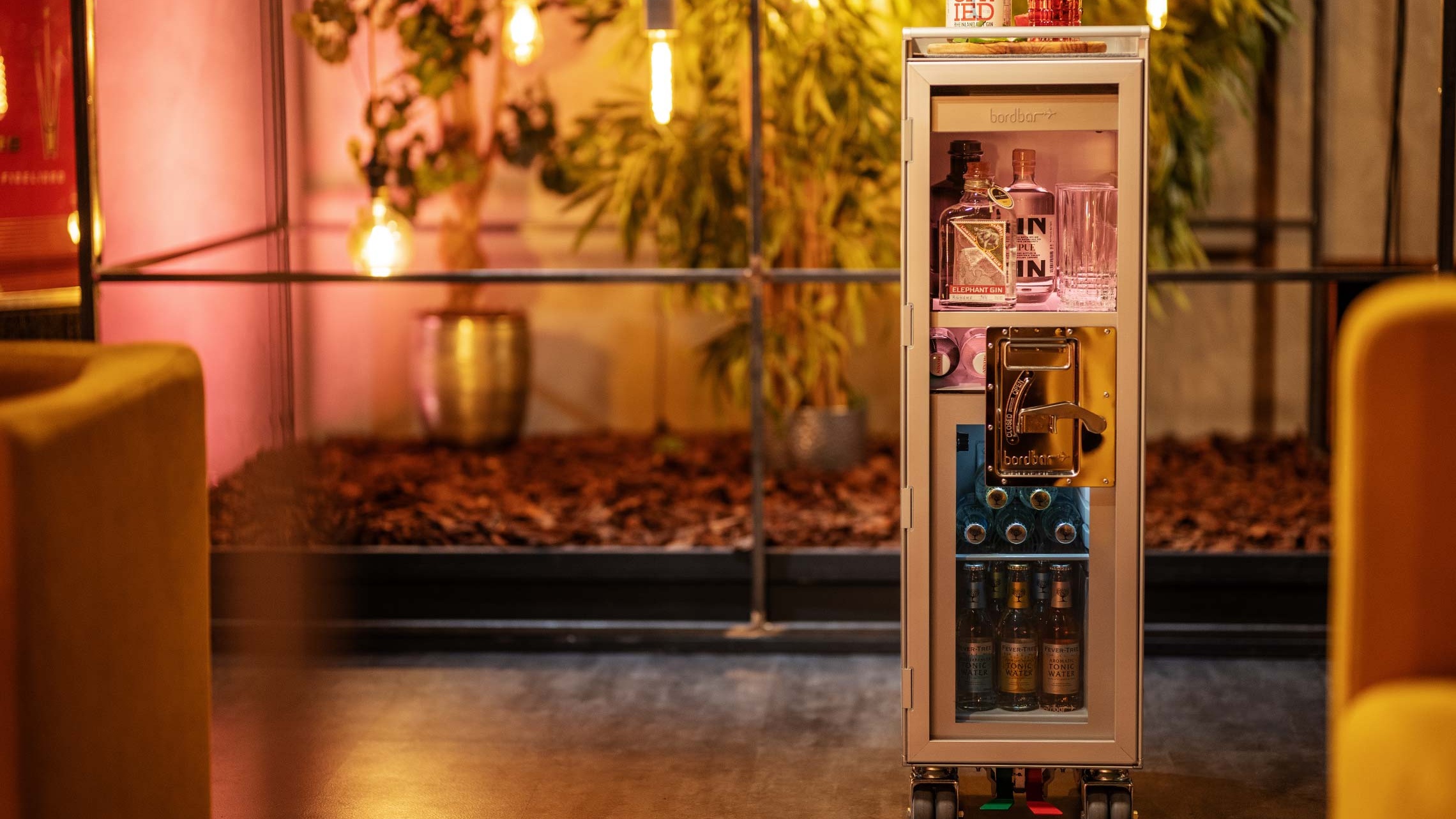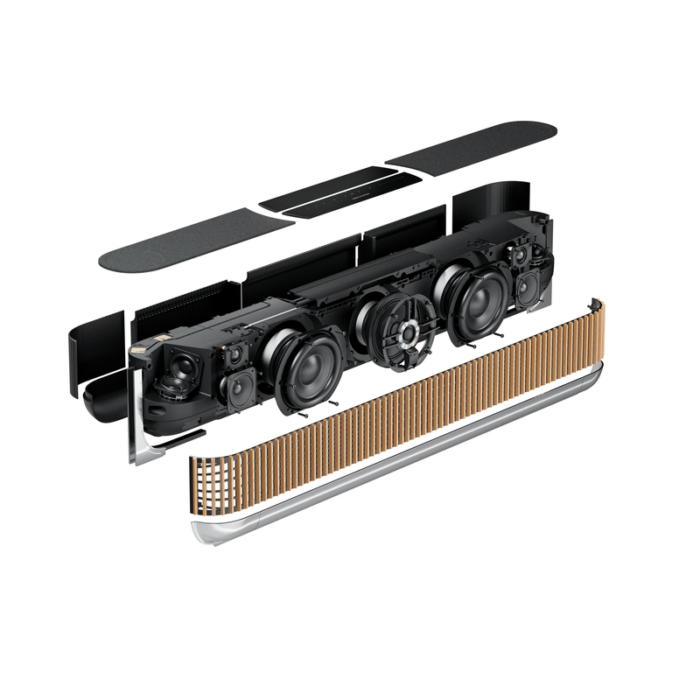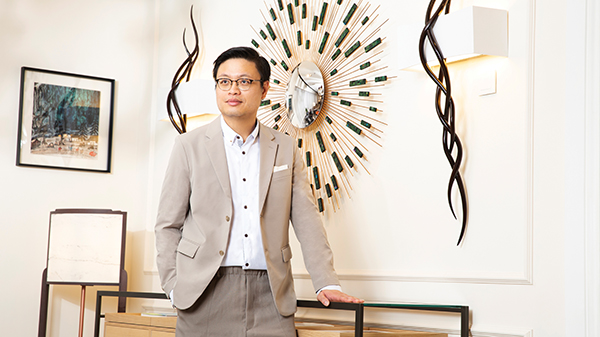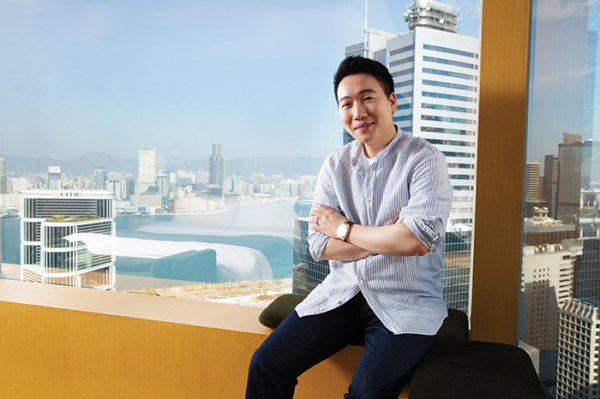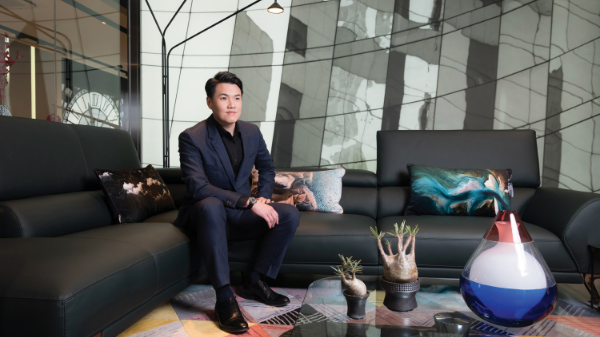Armed with the platform’s spot-on content, PressLogic Co-Founder and CEO Ryan Cheung makes data, analytics and algorithms seem positively thrilling…
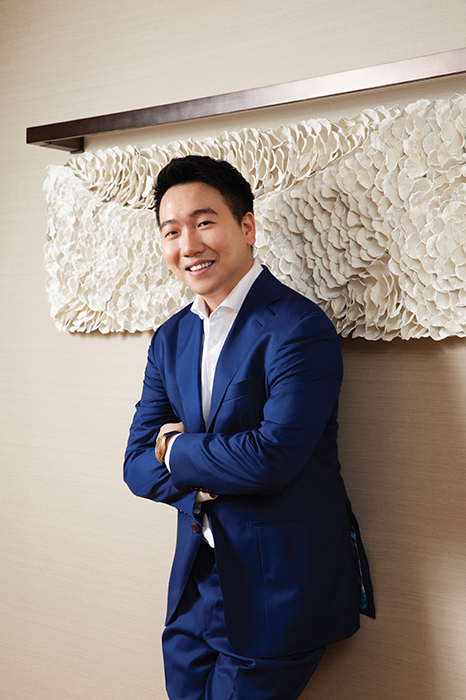
Shine some light on your background and how it’s shaped what you are doing today.
I studied at HKU [the University of Hong Kong] first and then, right after graduating from Peking University, I joined the structural products team at an investment bank. The tech industry was booming, and since I was handling a lot of data, equity and analytical aspects, after five years in banking I thought it was time to leap in that direction.
You co-founded digital media company PressLogic in 2016. How did the idea germinate?
Five or six years prior to PressLogic, my CTO, Edward Chow, and I started another e-commerce firm. For this venture we spent most of our time, money and resources on marketing and leveraging social media numbers. It wasn’t all smooth sailing, but we managed to build a strong relationship with data, and that’s when the realisation that this could be used to drive editorial content dawned upon us.
After a couple of years, we sold that company and our investors asked if we had another business idea in mind. At this point, we thought of launching a lifestyle media house and taking an innovative, analytical approach to media.
So, timing has played a big role in your success?
Most certainly! Five or six years ago, most media houses were very traditional in their approach and didn’t really care about data or social media trends. We took advantage of the situation and leveraged our unique methodology of studying social media analytics and predicting viral topics. It’s definitely about timing and the fact that we were lucky enough to build a solid, loyal audience who keep coming back to us for high-quality original content.
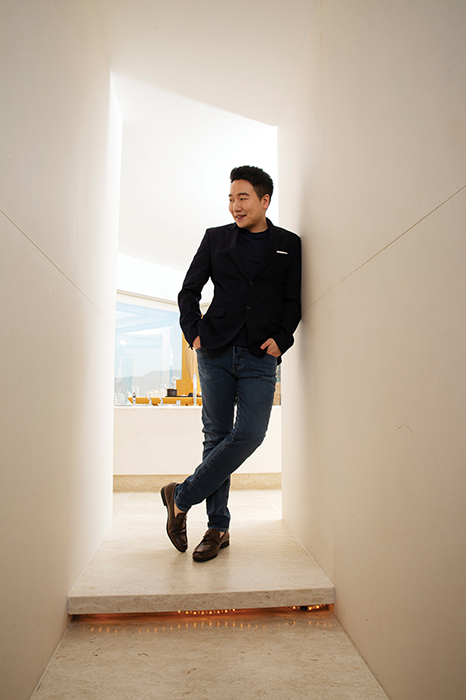
We have become a leading lifestyle portal for millennials, with more than 10 million monthly views across Asia – in Hong Kong, Singapore, Taiwan and Malaysia – and every year we achieve more than 50-percent growth rate in terms of revenue. This year, even with the pandemic raging and advertising brutally hit, our revenue has still grown aggressively.
Meitu gave us our first round of funding – US$10 million towards the end of 2018 – we achieved the break-even point in 2020. It was an incredible milestone for PressLogic, and we haven’t really needed further funds since.
Tell us about MediaLens, the artificial-intelligence tool that has underpinned PressLogic’s unprecedented rise.
MediaLens is our propriety AI social-media analysing system that uses data analytics to predict highly effective YouTube, Facebook and Instagram viral trends. It boosts engagement manyfold. To give you an example, while creating editorial or branded content, MediaLens prompts us with popular key words that are likely to trend across different categories – like women’s fashion, spring-summer style, and so on.
After several years of improvements, the software is now very sophisticated and can help create highly effective analytical insights for branding and advertisement purposes. The AI in the software uses a kind of reverse engineering approach in its algorithm, helping us to track our competitors’ social media movements and performance, and then compare that with ours. We can even track which company is using which influencer or KOL for its advertising.
MediaLens is a powerful tool, and after using it in-house for five years, we are now ready to find another revenue stream, so the plan is to re-launch the product and pitch it to others. Any digital content creator who works with advertisers will find it extremely useful in driving social media traffic.
“The AI in our software uses a kind of reverse engineering approach in its algorithm… We can even track which company is using which influencer for its advertising”
Are there any strategies you used when PressLogic was a start-up that you now find redundant?
In our case, it was quite the opposite. In the first few months, we tried to launch MediaLens [rather than the content platform] in the market and achieved no success. But as we strongly believed in our product, the setback did not hold us back. Instead of scrapping this, we steered our business model in another direction by using our methodology ourselves first. We created content first and tested the AI-backed system to drive traffic and assess its real-time success.
This proved to be very useful – trying our product first-hand not only gave us all the necessary data and traffic, but also helped us create a market price for it. Last year, we launched a new platform, an e-commerce website, based on this solid user base. This experience taught us the value of being adaptable and persevering, and we’ll take the same approach when it comes to any new idea.
Covid-19 has been especially challenging for media companies. What were some of struggles you had?
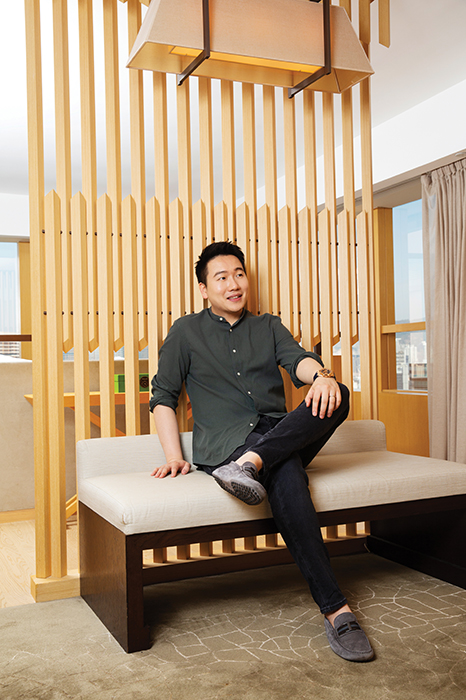
In the first few months it was very tough – with a novel virus, no one knew what to expect, and suddenly there was complete social isolation. But we were grateful to be an online company at the time – that’s the beauty of digital, you can do it from anywhere – so except for our video production and sales, it was smooth sailing after the initial hiccup.
Before Covid we were expanding quite aggressively in Singapore and Taiwan. I travelled once a month to the different offices to oversee work, but the pandemic has put a complete halt to that. We slowed down our expansion, but we’re hoping 2022 will be different and allow us some normalcy.
How do you see your company five years from now?
I want to see the PressLogic group leverage its data and continue expansion into different markets. If travel reopens by 2022-23, then we have plans to expand outside Asia into North America. We hope to become a more elevated, advanced and sophisticated data-technology company that utilises and is reliant on data and artificial intelligence to help our branded partners and merchants boost their revenues.
You recently became a father. Which is more challenging now – work or the baby?
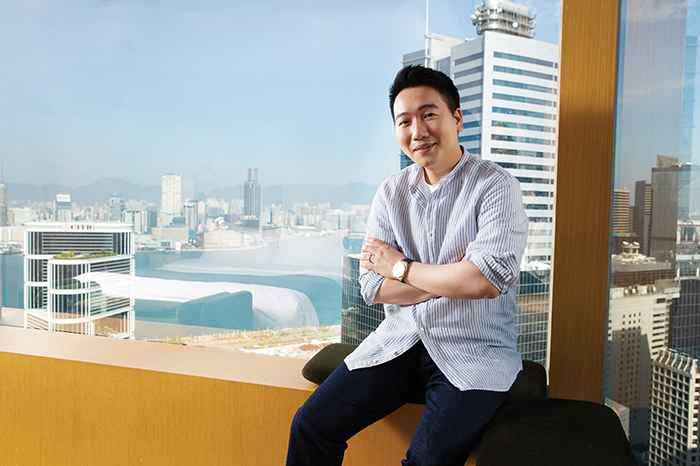
Well, my baby girl turned one in January, but so far, it’s not been difficult. My wife and the whole family are very supportive and it’s absolutely beautiful to teach her the little things, to hold her hand while she crawls and takes baby steps or says her first words.
So, you’re truly focusing on work-life balance now?
[Laughs] Yes! I must spend time with my baby every day. Earlier, work-life balance meant hanging with friends, partying on weekends, but now it’s purely family time and being able to walk away from my cell phone. Which is hard, by the way, as we are a tech company – there’s something happening 24/7, there’s a notification popping up every minute – but I make an effort not to always be glued to my phone.
“We are a tech company – there’s something happening 24/7, there’s a notification popping up every minute – but I make a conscious effort not to be glued to my phone”
What advice would you give fellow entrepreneurs entering the start-up world?
Study the business model and your market well. Be clear on your exit strategy. If your model is not generating success, have a clear timeline on when to exit. Start-ups aren’t just cool, hip and trendy, and not everyone is lucky with funding, so unless you believe in your idea 100-percent and are willing to give it your all, don’t get into it. The journey is not smooth; it will consume you, burn you, but it is extremely rewarding if it’s your passion project.
What’s your definition of success? Any regrets?
Doing things that I am told are impossible. An idea or a dream might sound difficult in the beginning, but if I believe in it, and there is some chance of success, I will dedicatedly pursue it until it becomes a reality.
I have no regrets. There were mistakes, and learning from those mistakes, but I don’t believe in analysing decisions in hindsight. That’s just not healthy!
What’s your ideal Sunday like?
Hanging out with my wife, friends and my baby girl. Enjoying the sun, a nice brunch, and some outdoor activities. I love windsurfing, watching movies and Netflix as well.
Thank you.
(Interview by: Nikita Mishra Photographer: Jack Law Art Direction and Styling: Jhoshwa Ledesma Videographer: Andy Wan)
